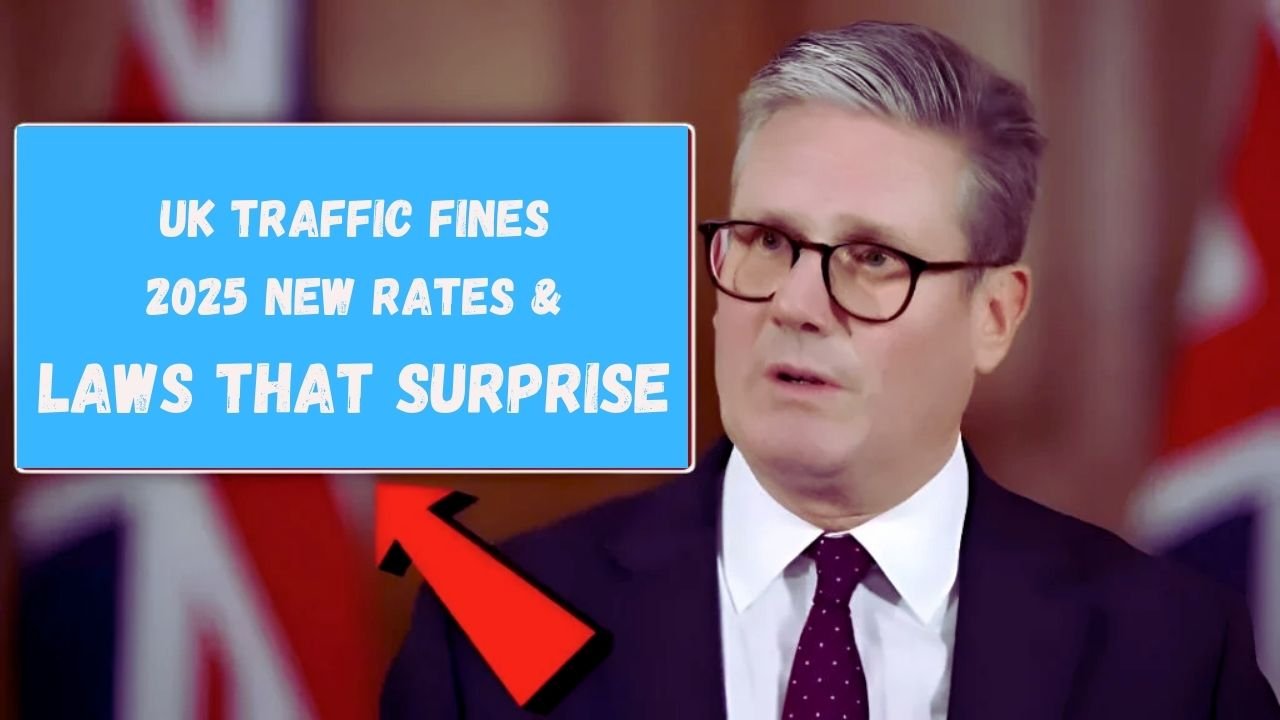Drivers across the UK are in for some big shifts this year when it comes to road rules and penalties. With the government pushing for safer streets and greener travel, several updates have come into play that could catch many by surprise. From how fines are worked out to new taxes on electric cars, these changes aim to cut down on risky behaviour and boost road safety. But they also mean motorists need to stay sharp to avoid hefty bills or points on their licence. Let’s look at what’s new and what it means for everyday driving.
Stricter Speeding Penalties and Enforcement
Speeding remains one of the top causes of crashes, and the penalties haven’t changed much in amount but enforcement is getting tougher with new tech like AI cameras rolling out in more places. The minimum fine is still £100 with three points, but it can climb based on your income – up to 175 percent of your weekly pay, capped at £1000 or £2500 on motorways. Offences are split into bands depending on how much over the limit you were. For example, going way too fast could land you in Band C, with a possible ban of up to 56 days or six points. Here’s a quick table showing the bands:
| Speed Limit (mph) | Band A Speed (mph) | Band B Speed (mph) | Band C Speed (mph) |
|---|---|---|---|
| 20 | 21-30 | 31-41 | 41+ |
| 30 | 31-40 | 41-50 | 51+ |
| 40 | 41-55 | 56-65 | 66+ |
| 50 | 51-65 | 66-75 | 76+ |
| 60 | 61-80 | 81-90 | 91+ |
| 70 | 71-90 | 91-100 | 101+ |
Points or disqualification vary too – three for Band A, up to six or a ban for higher bands.
Tougher Rules on Mobile Phone Use While Driving
Using your phone at the wheel has always been against the law, but the rules now cover almost any touch of the device, even if you’re stopped at lights. The fine stays at £200 with six points, which is enough to revoke a new driver’s licence if they’ve passed their test in the last two years. Hands-free calls are okay if you don’t touch the phone, but scrolling for music or snapping photos is out. Police can still pull you over if they think you’re distracted, even with legal kit like sat-navs. This crackdown comes as distractions cause more accidents, and it’s a surprise for those who thought quick checks were fine.
Electric Vehicles Hit with New Taxes and Charges
If you drive an electric car, 2025 brings some unwelcome news as the government ends some perks to level the playing field. From April, EVs must pay road tax for the first time, known as VED. Rates depend on when your car was registered, but most will pay £195 a year. Also, from Christmas Day, electric and hydrogen cars lose their exemption from London’s £15 Congestion Charge. That’s a shock for green drivers who picked EVs to save cash. On top of that, the Benefit in Kind tax for company cars rises by one percent across all bands, hitting EVs at three percent. Here’s a table for EV VED rates:
| Registration Period | First Year Rate | Annual Rate After |
|---|---|---|
| From April 2025 | £10 | £195 |
| April 2017 to March 2025 | N/A | £195 |
| March 2001 to March 2017 | N/A | £20 |
Plus, if your EV cost over £40,000 new, you’ll pay the £410 luxury supplement for five years.
Other Surprising Law Changes and Proposals
Beyond fines, there are more updates shaking things up. The Zero Emission Vehicle mandate means 28 percent of new cars sold must be electric, pushing makers to go green faster. New ’25’ and ’75’ number plates arrive in March and September. The trial of AI cameras spotting phone use and no seatbelts ends in March, but they might roll out nationwide if successful. Proposals floating around include mandatory eye tests for over-70s, a lower drink-drive limit to match Scotland’s, and points for not wearing seatbelts – currently just a £100 fine. Fuel duty stays frozen at 52.95p per litre until March 2026, giving some relief at the pumps.
How to Stay on the Right Side of the Law
With all these changes, it’s wise to brush up on habits to avoid surprises. Always check speed limits, especially in 20mph zones spreading in Scotland and Wales. Keep phones out of reach and use built-in tech for calls or maps. For EV owners, budget for new taxes and check if your route hits congestion zones. Renew licences on time and report any health issues that could affect driving. If caught, consider speed awareness courses to dodge points if it’s your first slip-up. Staying alert means safer roads for everyone and keeps your wallet intact. In the end, these updates show the push for better, cleaner driving – but they sure pack some punches for the unprepared.
